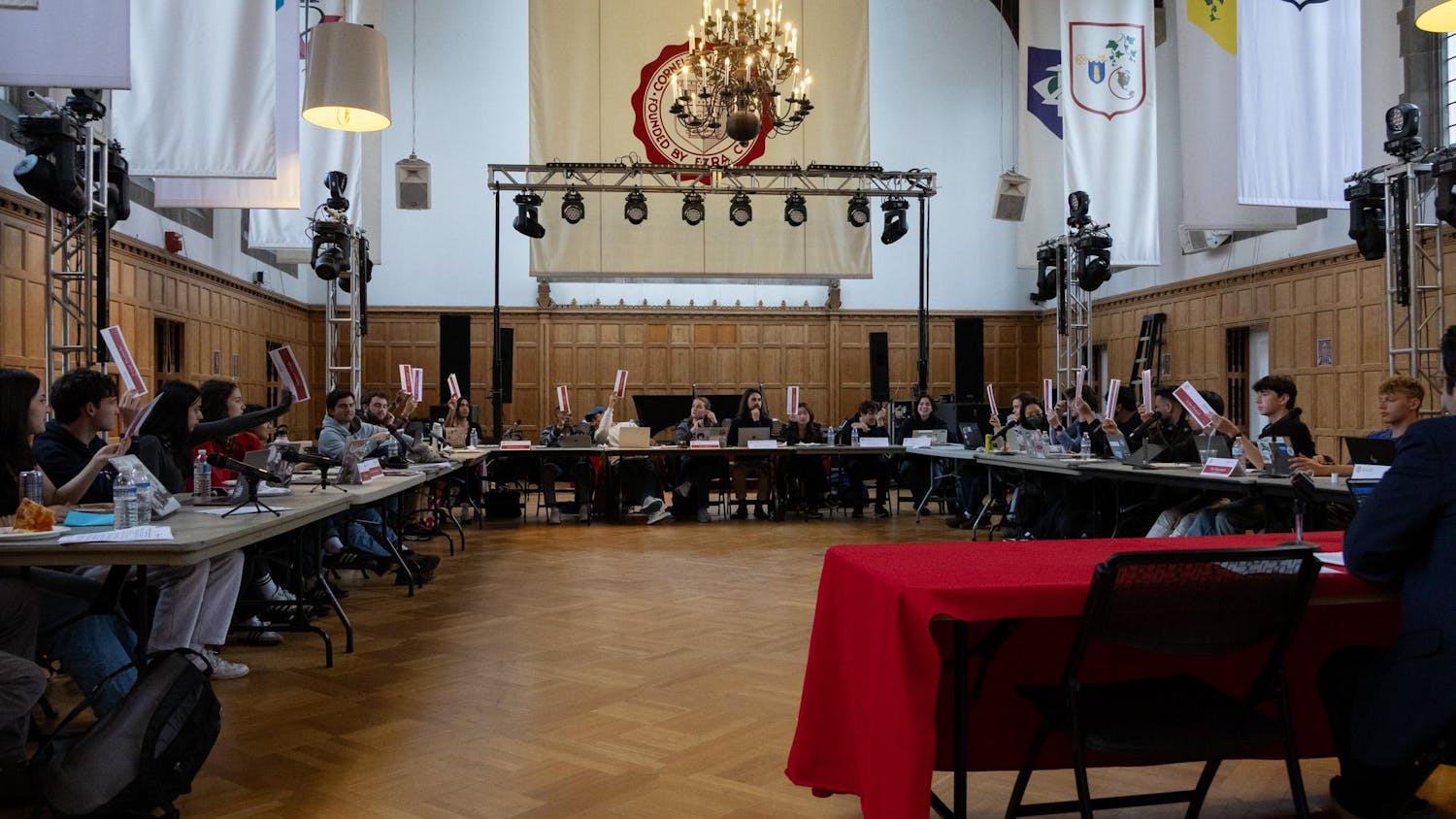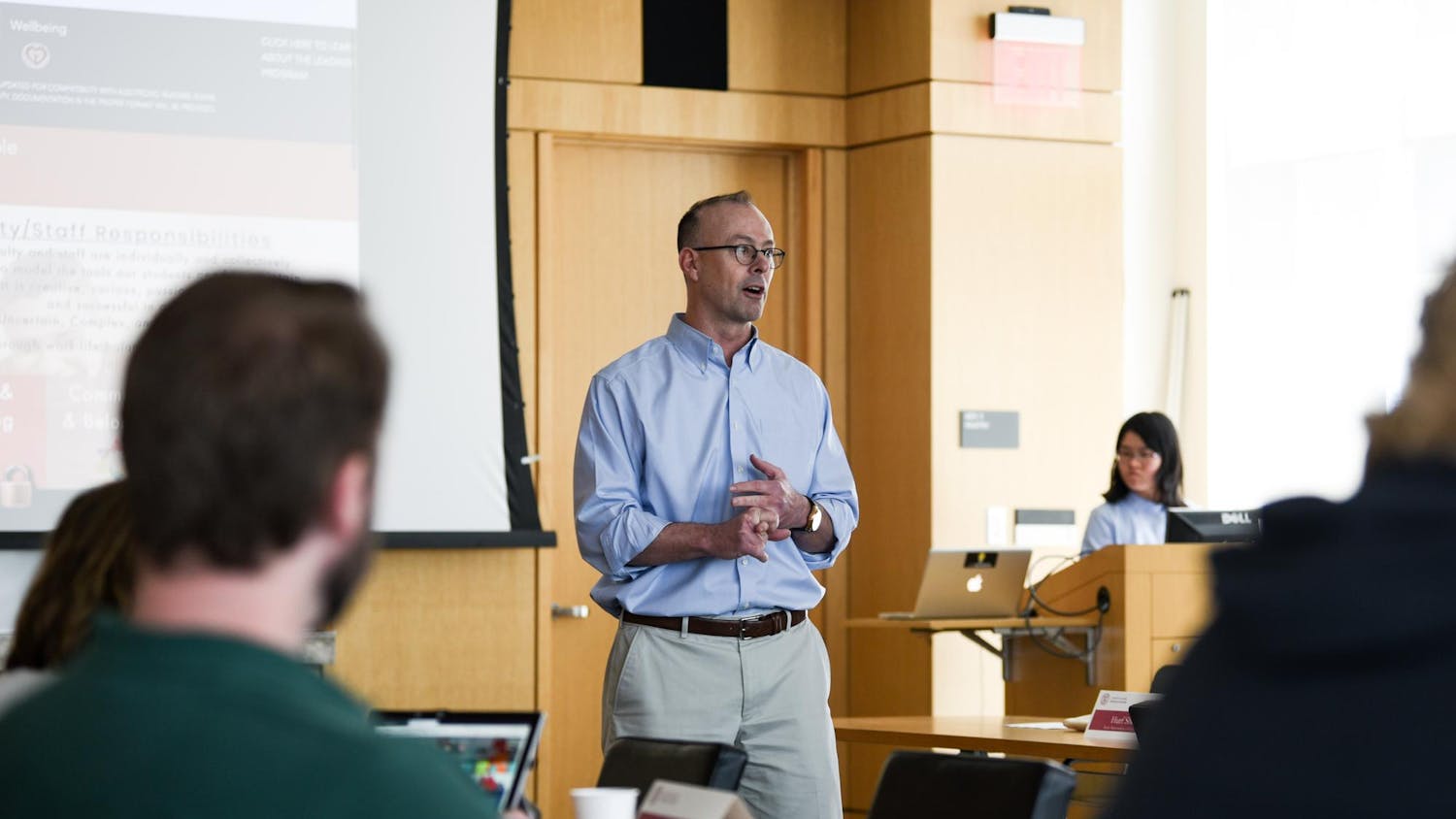Correction appended.
The classroom for interns and residents at the College of Veterinary Medicine is a zoo — literally.
The partnership between the veterinary college and Rosamond Gifford Zoo in Syracuse allows students to gain hands-on experience in zoological medicine as the primary medical care providers for the zoo’s 275 species.
The program is a rare experience — from its hands-on approach to the wide variety of animals — and one of only around 20 similar ones nationwide, according to Prof. Noha Abou-Madi, clinical science.
About 60 to 70 candidates apply to intern during each application cycle, Abou-Madi said, but the highly-selective program only accepts two intern applicants each year and one applicant as a resident every three years.
“This program has impacted every species at the zoo,” zoo director Ted Fox told The Sun in an email. “The Cornell team is involved in treating every type of animal, from a tiny poison dart frog to a 9,000-pound elephant.”
This symbiotic partnership began in 1997, when Cornell professors gave emergency surgery to a young elephant named Mali, according to the University.
After loading an anesthesia machine and a large-animal surgical table into a truck and an hour-long surgery, Mali survived her life-threatening ailment. As one of just 40,000 of her species left in the world, the procedure was crucial.
Cornell has been instrumental in several more operations since — from the preparation for the birth of a baby Asian elephant in January 2019 to the transportation of an Amur tiger from a Fedex cargo terminal in Rochester to the zoo.
“That kind of expertise benefits both our institutions and basically lets people know that together, we are the wildlife experts in this part of the world,” Fox wrote.
Now, the program has flourished, with the Cornell team taking care of animals four days a week — up from only one day each week at the inception of the partnership, Abou-Madi explained.
“Cornell is now considered part of our zoo animal care team,” Fox wrote. “And we are now considered a teaching facility – ‘Zoo University,’ as Cornell dubbed us.”
Correction: A previous version of this article inaccurately described the students who intern for the Rosamund Gifford Zoo as primary caregivers, rather than primary medical care providers. Primary caregivers provide daily care and husbandry for the zoo, whereas primary medical care providers specialize in zoological medicine.

At ‘Zoo University,’ Cornell Veterinary College Students Gain Hands-On Experience
Reading time: about 2 minutes
Read More










